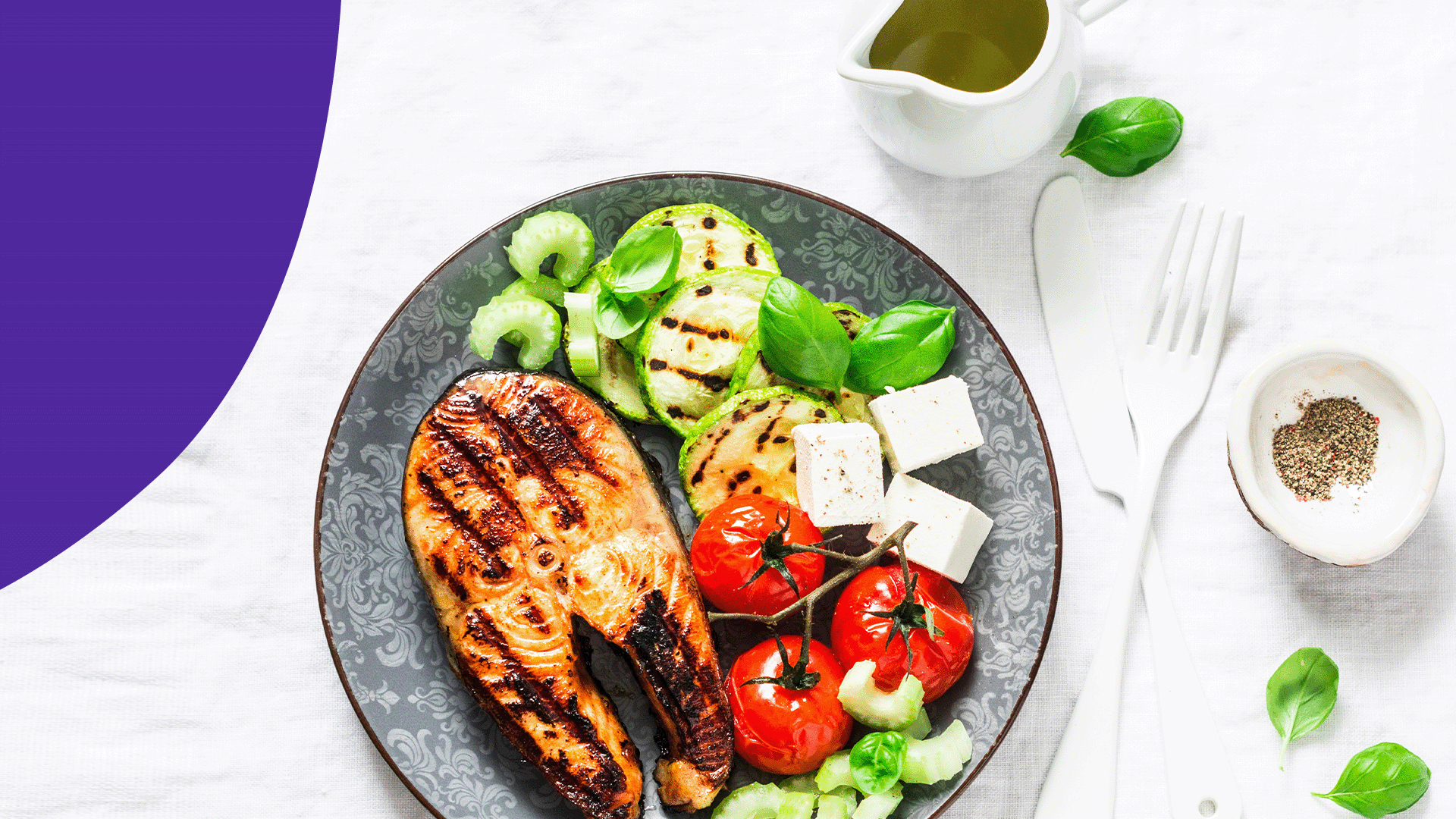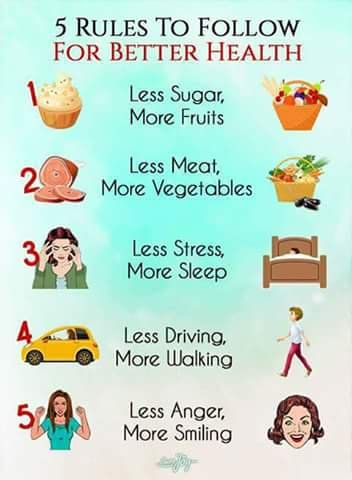
There are many types and varieties of dietary fats when you eat foods. Many are harmless but some might be dangerous. They may also increase your risk of weight gain. If you eat a lot, you might have difficulty losing weight. You need to limit your intake. Here's how you can do it. First, identify what types of fat are in your diet. They are divided into three types: saturated, trans, or monounsaturated.
To understand how to eat healthy fats, you need to know the difference between saturated and unsaturated fats. Saturated fats can remain solid at room temp and are found in red meat, fullfat dairy products, eggs, and other animal products. Coconut oil and Palm oil are also good sources of saturated oils. Monounsaturated as well as polyunsaturated fats can be good for your health. They are also available in vegetable oils and olive oils.

There are several types of dietary fats. Saturated fats are bad for you, while monounsaturated fats are healthy for you. Saturated Fats are the worst type of fat and should be limited if you're trying to lose weight. But, trans and saturated fats can have negative effects on your health. Your daily intake of dietary fat should be between 5 and 10 grams.
A moderate amount of saturated fat can be good for your health, but it is best to limit intake. Saturated Fats can make it more difficult to lose weight and increase your likelihood of developing diabetes and other diseases like cancer. You should limit your intake of saturated fat. You can make sure your diet is more nutritious, while also reducing your overall calories. These foods are good for your health.
Saturated fats can be the most damaging. While saturated fats can cause heart disease, they should account for about five to six percent of your daily calories. Nevertheless, it's important to note that saturated fats can be a part of your diet. The majority of fatty foods have a mix of fatty acid, so it's a good idea that you include them in your daily diet. You can replace the saturated fats with those that aren't.

Saturated fats are among the most harmful. These fats are extremely harmful to your health. Reduce the intake of saturated fats from your diet. Saturated oils can lead to weight gain. It is also important to monitor your sodium intake. The American Heart Association recommends you reduce your intake of saturated fats. Eat more fruits, vegetables, and whole-grain foods if you are looking for the best food options.
There are two kinds of dietary fats. You can either get them from animal products or plant-based foods. Omega-3 fats are good to the heart. Saturated fats are bad for your heart. They have a variety of other benefits to your health. Particularly beneficial for your heart are the omega-3 fats found within fish and poultry. They are crucial for your heart health. Your heart will be grateful if you eat omega-3 fatty acid rich foods.
FAQ
Get immune enhancement with herbs and supplements
Herbs and natural remedies can be used to boost immune function. There are many natural remedies that can boost immunity, including echinacea (oregano), ginger, ginkgo biloba and vitamin C.
These herbal remedies shouldn't be considered a replacement for medical treatment. Side effects include nausea, diarrhea and stomach cramps, headaches and dizziness.
How to measure bodyfat?
A Body Fat Analyzer will give you the most accurate measurement of body fat. These devices are used to determine the percentage of bodyfat in people who desire to lose weight.
How can I live my best everyday life?
It is important to identify what makes you happy. Once you've identified what makes your happy, you can start to work backwards. You can also ask other people what they do to live the best lives possible every day.
You can also read books like "How to Live Your Best Life" by Dr. Wayne Dyer. He discusses finding happiness and fulfillment throughout our lives.
What should you eat?
Take in lots of fruits and veggies. They contain vitamins and minerals which help keep your immune system strong. They are also rich in fiber, which is good for digestion and makes fruits and vegetables filling. Aim to eat five to six servings of fruit each day.
You should also drink lots of water. Water flushes toxins from your body and helps you feel full between meals. Drink about eight glasses each day.
Choose whole grains over refined grains. Whole grains contain all of their nutrients, including B vitamins and iron. Refined grain has lost some of its nutrition.
Sugary drinks should be avoided. Sugary drinks are loaded with empty calories and contribute to obesity. Instead, choose water, milk, and unsweetened tea.
Avoid fast food. Fast food lacks nutritional value. While it might taste good, it won't give your body the energy it needs to function properly. Use healthier options, such as soups, sandwiches, salads, and pasta.
Reduce your alcohol intake. Avoid alcohol as it can cause empty calories and poor nutrition. Limit your consumption to no more than 2 alcoholic beverages per week
Red meats should be avoided. Red meats have high levels of cholesterol and saturated fat. Opt for lean cuts of beef, pork, lamb, chicken, fish, and turkey instead.
Does being cold give you a weak immune system?
It has been said that there are two types of people on the planet: those who love winter, and those who don't. You may wonder why you feel so bad when it's cold, regardless of whether you love it or hate it.
The answer lies in the fact that our bodies are designed to function best during warm weather. Because of this, our bodies evolved to thrive and survive in hot climates.
Now, however, we live in a completely different environment to how our ancestors lived. We spend more time indoors, are exposed to extreme temperatures (cold/heat), and eat processed food rather than fresh.
This means that our bodies aren’t used to these extremes. When we do venture out, our bodies are unable to cope with the extremes.
However, there are ways to counter these effects. You can combat these effects by making sure you are well-hydrated all day. If you drink plenty of water, you'll help keep your body properly hydrated and flush toxins from your system.
Another important step is to ensure that you're eating healthy meals. Consuming healthy food helps maintain your body's optimal temperature. This is particularly helpful for anyone who spends long periods of time inside.
It is worth taking a few extra minutes each day to meditate. Meditation helps to calm your mind and body which can make it easier to deal stress and illness.
What is the best diet for me?
There are many factors that influence the best diet, including your gender, age, weight, health condition, lifestyle, and personal preferences. You should also consider how much energy your exercise consumes, whether you like low-calorie or high-calorie foods, and what you enjoy in terms of eating fruits and veggies.
Intermittent Fasting is an alternative to traditional fasting if you are looking to lose weight. Intermittent fasting allows you to consume only certain meals per day, instead of eating three large meals. This may be a better option than traditional diets with daily calorie counts.
Intermittent fasting has been shown to improve insulin sensitivity, reduce inflammation and lower the risk of developing diabetes. Intermittent fasting has been shown to promote fat loss as well as improve overall body composition.
Statistics
- According to the Physical Activity Guidelines for Americans, we should strive for at least 150 minutes of moderate intensity activity each week (54Trusted Source Smoking, harmful use of drugs, and alcohol abuse can all seriously negatively affect your health. (healthline.com)
- This article received 11 testimonials and 86% of readers who voted found it helpful, earning it our reader-approved status. (wikihow.com)
- In both adults and children, the intake of free sugars should be reduced to less than 10% of total energy intake. (who.int)
- The Dietary Guidelines for Americans recommend keeping added sugar intake below 10% of your daily calorie intake, while the World Health Organization recommends slashing added sugars to 5% or less of your daily calories for optimal health (59Trusted (healthline.com)
External Links
How To
How to stay motivated and stick to healthy eating habits and exercise
Staying healthy is possible with these motivation tips
Motivational Tips To Stay Healthy
-
List your goals
-
Realistic goals
-
Be consistent
-
Reward yourself when your goal is achieved
-
Do not give up even if you fail your first attempt.
-
Have fun!